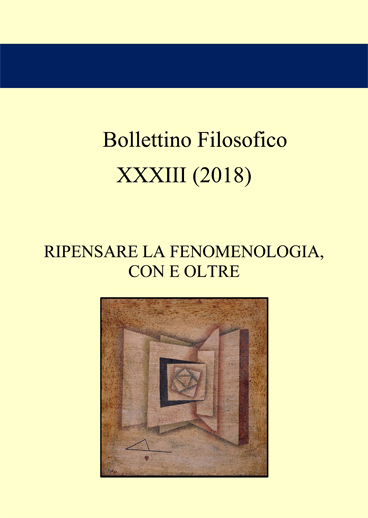Vol. 33 (2018): Ripensare la fenomenologia, con e oltre

Inseparable from its historical development, Phenomenology continues to represent a central benchmark of the thought of our time, especially compared to the many fields of knowledge that challenge the hypothesis of Philosophy as a “rigorous science”. The international reception of the Phenomenological Movement started by Husserl, with its various positions, showed from the outset the impossibility of a phenomenological “orthodoxy” and also, perhaps, the intrinsic difficulty of defining a specific thematic object, while the complicated relationship between the universality of essences and the singularity of experiences produced a theoretical force field reverberating throughout all contemporaneity. However, the debates triggered by the phenomenological method (this can include the famous split between Heidegger and Husserl) involved Philosophy also, and above all, its methods, its structures, the schemes through which it has expressed and still expresses itself; those debates called into question the entire history of western philosophical thought. Therefore, questioning phenomenology “with and beyond”, today not only means retracing its important stages or its breaking point with tradition; it also means reconsidering the questions that articulated its evolution and interacted with philosophical reflection and with the other fields of knowledge on which human reasoning is exercised.
